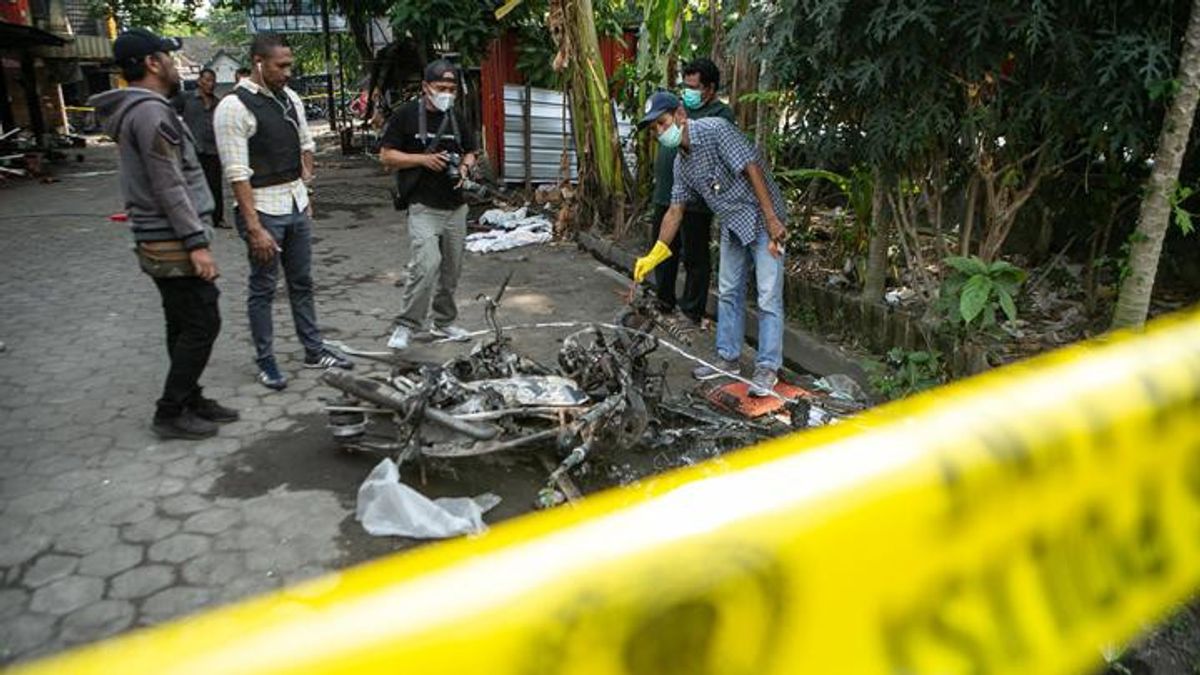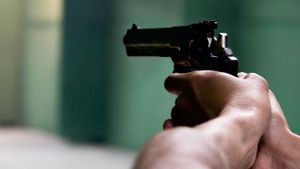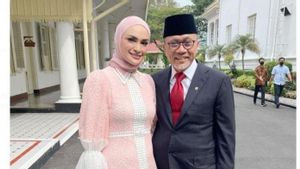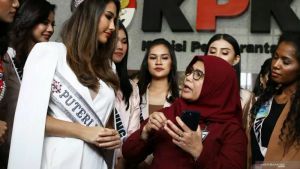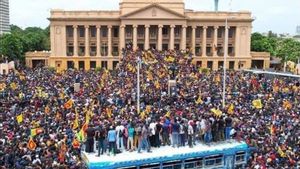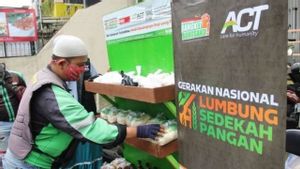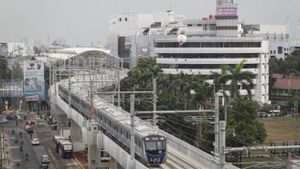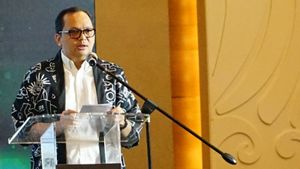JAKARTA - The parties to the conflict in the campus area and the cafe area of Babarsari, Sleman, Yogyakarta, last Monday, July 4, have agreed to jointly maintain harmony between each other and continue to strive to prevent friction from occurring again.
The joint statement was delivered directly by representatives from the East Nusa Tenggara Youth Forum, the Papuan Students' Association, and the DIY AMKEI Association at the DIY Police Headquarters Complex, Sleman, Thursday (7/7).
"To Mr. Sultan (Governor of DIY), Mr. Police chief, and all Indonesian people, especially residents of Yogyakarta, who were disturbed a few days yesterday, we apologize profusely," said Secretary General of the NTT Youth Forum, Talla Alor.
The current conditions are conducive, but people are pessimistic that such riots will not happen again. Not without reason. It has been fairly frequent that riots involving youth groups of students from Maluku, Papua, and NTT occurred around Babarsari, Yogyakarta. Law enforcement officers have often reconciled it, but it keeps repeating itself.

VOI collects data from various sources, clashes between ethnic groups that resulted in the destruction of public and private facilities in Babarsari, Yogyakarta, have occurred since 15 years ago.
- June 29, 2007 – Kupang and Timor Leste students clashed, 4 people were injured, and house windows were shattered
- July 2, 2007 – Kupang and Timor Leste groups clashed again
- January 12, 2008 - South Sulawesi and East Indonesia students clash in Seturan
- January 15, 2008 - The commotion continues, the South Sulawesi student dormitory is attacked. Part of the building was destroyed, 4 motorbikes caught fire, 7 motorbikes were badly damaged
- May 8, 2012 – Barbasari residents and East Timorese students clashed over a parking fee case at an internet cafe. As many as 24 houses were damaged, 1 motorbike was burned, 4 cars were damaged
- July 2012 – Flores and Kupang students fight during graduation celebration night, 6 people are injured
- November 30, 2012 - Armed robbery of a couple who were arguing. The female victim was held captive for a day and a night at the robber's boarding house
- September 2013 – Alor and Sumba students clashed in a cafe, 2 people were injured
- December 31, 2014 – Papua and Flores students clashed. The two groups of stone war
- September 2015 – Ambon and Sumba students clashed again, and several people were injured
- June 9, 2017 – A number of students were noisy with 3 policemen in a coffee shop. Allegedly due to the circulation of alcohol outside the hours specified during the fasting month. One student died
- September 12, 2018 – Papua and Maluku groups fight over a broken alcohol glass in the cafe. One student was injured
- March 2020 – Online motorcycle taxi mobs clash with debt collectors because motorcycle taxi drivers were mistreated, 6 people were injured, 4 motorbikes were damaged
- June 18, 2021 – Clashes between religious organizations and a group of youths in Babarsari over the closure of entertainment venues
- December 21, 2021 – Stabbing of Papuan teenager in Batan office complex
- May 8, 2022- Clashes between two motorized groups because no one wants to budge on the road. They threw stones at each other 2 people died
- July 4, 2022 - Riots at shophouses by Papuan mobs caused their colleagues to become victims of fighting between NTT and Maluku groups, 3 people were injured, several shop houses were damaged, 7 motorbikes caught fire
From the data, it can be seen that riots and acts of anarchism seem to have become a trend in Babarsari. You could say, almost every year. In particular, it involved three groups: ethnic East Nusa Tenggara (NTT), Papua, and Maluku. In fact, they are immigrants who should be able to follow the customs prevailing in the local population.
It's no wonder that many people no longer have empathy, even to the point of likening Babarsari to Gotham City, a city that is described as having a high crime rate in the fictional superhero Batman story as a nickname on social media, Babarsari Gotham City.
The Main Factor Is Not Tribal Sentiment
Muhammadiyah University Lecturer Prof. DR Hamka (Uhamka) Said Romadlan assessed that riot conflicts involving migrants and indigenous tribes or immigrants and immigrants had often occurred not only in Yogyakarta.
The main factor is not tribal sentiment. The substance of the problem is usually related to their efforts to make a living.
“Tribal sentiment only emerged later after there was a lighter, whether it was due to fighting over land, parking spaces, and the like. There can be many triggering factors,” he said when contacted, Wednesday (13/7).
If you want to unify your vision, you need intense communication.
“Currently, there may not be good communication with the three groups that are always fighting in Babarsari. So, the immigrants have not been able to blend in completely, there is still a regional sentiment. They still bring the culture from their area when they live in Yogya,” he said again.

Said suggested all parties sit down together. The sultan or other regional apparatuses can involve migrants in any activities for the sake of developing Yogyakarta. This creates a sense of belonging and caring for one another.
"So, if there is a conflict, it will not destroy it," added Said.
It is also necessary to create an adequate container as a place to communicate. Currently, it is not balanced. More and more communities, fewer available containers. Thus, it is prone to friction
“The most important thing is to understand the basic problem first. Don't just finish on the surface. If the base is not finished, it's still the same. There was a little lighter and it was immediately crowded again," he said.
Popularizing Srawung Culture
Yogyakarta culturalist Charis Zubir also hopes that there will be serious efforts to overcome the various problems that occur in Babarsari. Yogyakarta is a city of tourism and a city of education. So, it is also necessary to provide guidance, education, and srawung (javanese: interaction).
"Yogyakarta, after all, has srawung cultural roots," he said, quoted from Kumparan, Wednesday (13/7).
Srawung, said Hizbullah Hanif in his writing on mahkamahnews.org, is a cultural product of the Javanese society which plays a central role in shaping the characteristics of a society that is tolerant, friendly, and has a high level of concern for others.
SEE ALSO:
The more intense the interaction carried out by individuals in society, the greater the influence of society on the individual. In other words, society is increasingly able to carry out its social control function.
"Srawung culture is very helpful in suppressing the spread of radicalism because it allows people to pay attention to each individual properly and then improve or control values that are considered contrary to the values and norms in that society," said Hanif.
The Dialogue Process Has Been Four Years
The Governor of the Special Region of Yogyakarta (DIY) as well as the King of the Yogyakarta Palace Sri Sultan Hamenghubowono X, as quoted from tempo.co, said that the dialogue process with immigrants had actually been carried out about four years ago. The Sultan asked all immigrants in Yogyakarta to respect and uphold the local culture.
During the dialogue, Sultan Hamengkubowono X also underlined that acts of physical violence are not justified in Yogyakarta. Therefore, if there is a conflict, it should be resolved with a cool head through dialogue.

That's why when he heard that Barbasari was rioting again, he asked the Yogyakarta Regional Police to take firm action against the violators.
"If no action is taken, then there is no fear of doing the same thing in the future. Enforce the law because there has been a violation. Our society does not recognize such a culture of physical violence. If action is not taken, there will be no deterrent effect," said the Sultan of Yogyakarta to reporters, Tuesday, July 5, 2022.
The English, Chinese, Japanese, Arabic, and French versions are automatically generated by the AI. So there may still be inaccuracies in translating, please always see Indonesian as our main language. (system supported by DigitalSiber.id)
